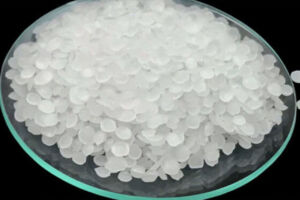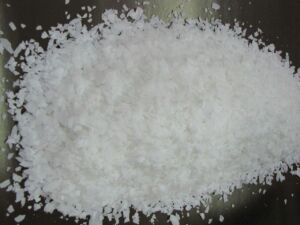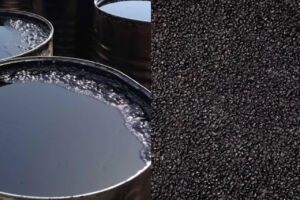Home » ? WHAT IS THE PETROCHEMICAL INDUSTRY
WHAT IS THE PETROCHEMICAL INDUSTRY?
The petrochemical industry is one of the most productive industries in the country, which has a great impact on job creation and economic development. One of the most important features of the petrochemical industry is its very high added value. In the sense that with chemical and physical changes on oil and gas hydrocarbons, the value of the product can be increased by 10 to 15 percent.
The word petrochemical is a combination of the two words petrol and chemistry, and its literal meaning is chemical substances derived from oil. This term was used for the first time in 1942 by some chemical manufacturers. In general, petrochemicals are that group of chemical products that are prepared through the transformation or interactions of some of the hydrocarbons of oil or natural gas with other materials.
Petrochemical products have many general and industrial uses such as (nylon cloth, darkron, synthetic wool and cotton), electrical appliances, chemical fertilizers, solvents, cleaning materials, etc.
Petrochemical products can be divided into three distinct categories: basic products such as ethylene, propylene, sulfur, gasoline, ammonia, etc. These products form the basis of many other petrochemical products. The intermediate products that are produced from the main products and the raw materials of the factories that produce the final products. Such as polychlorovinyl (PVC), melamine, etc. The third category of petrochemical products are final products that are used to make equipment and tools used by industries and the general public, such as synthetic fibers, plastic objects, rubber, chemical fertilizers, etc.
WHAT ARE PETROCHEMICAL PRODUCTS AND WHAT ROLE DOES IT PLAY IN OUR DAILY LIFE?
Petrochemical products play a very important role in our daily life. Almost all the tools and equipment we deal with have some kind of petrochemicals used in them. Petrochemicals are made from oil and oil derivatives; Therefore, the global price of oil plays an important role in the price fluctuations of petrochemical products.
The economic growth or GDP of many countries depends on oil and petrochemical products. Many petrochemical products, in addition to being exported, also have high domestic consumption. Therefore, petrochemical products are responsible for the important task of providing foreign exchange for the country, especially in the conditions of sanctions. Rubber, paint, fertilizer, alcohol, battery, etc. are important petrochemical products. It is clear that due to the wide variety of petrochemical products, it is not possible to name all of them in this article.
WHAT IS MEANT BY UPSTREAM OR DOWNSTREAM PETROCHEMICAL INDUSTRIES?
In terms of the oil industry, upstream and downstream industries are mentioned. In general, the upstream part of the oil industry includes the exploration stage, extraction, and the part of transferring and supplying oil and gas to refineries, and the downstream part includes refineries, petrochemicals, and the part of transferring and supplying oil and gas products to final consumers.
PETROCHEMICAL DOWNSTREAM INDUSTRIES
Downstream industries are a part of the petrochemical industry, which usually do not play a role in the production sector, and the activities of this sector are carried out in relation to consumers. Communicating with consumers and distributing and selling products is one of the main tasks of downstream industries. In addition to meeting domestic needs and creating jobs, downstream industries play an important role in the development of exports and presence in international markets. The studies conducted by experts show that this industry has not yet reached the expected status and can have more capacities and play a more effective role in economic and social development. Downstream petrochemical companies are established according to the type of feed of the parent industry, which is a petrochemical company, to undertake the task of distributing and exporting it.
THE IMPORTANCE OF DOWNSTREAM PETROCHEMICAL INDUSTRIES
Petrochemical industries play an important role in economic and social development due to the provision of domestic needs, and because the duty of this sector is the distribution and export of products from the parent company’s affiliates, they are of great importance. If the downstream industries are not supported and do not have the ability to communicate properly with consumers, the performance of the parent company will be weakened and the company itself will not be able to operate for a long time. In addition to these issues, among other reasons for the importance of these downstream industries, the following advantages can be mentioned.
- Avoid raw sales
- Increase in non-oil exports
- Creating high added value
- Fair distribution of wealth in the country
- Distributing and strengthening cooperatives at the national level
REASONS FOR NOT DEVELOPING DOWNSTREAM INDUSTRIES
Many measures can prevent the development of downstream industries, one of the most important of which is selling raw materials directly from mega factories. Downstream industries are very vulnerable and should be supported by the government. This support can be done through the following measures.
- Creating investment security
- Creating infrastructure
- Attracting capital
- Prevent the sale of raw materials
- And…
If the problem of capital and support from the government is solved in these downstream industries, necessary measures can be taken to remove obstacles such as sanctions and lack of skilled technicians. With this work, in addition to the development and progress of downstream petrochemical industries, students of this field can be helped and cause the growth of employment in the country.
IMPORTANT MEASURES FOR THE DEVELOPMENT OF DOWNSTREAM PETROCHEMICAL INDUSTRIES
As we mentioned, government support is one of the important reasons that help the development of these industries. But in addition to that, other measures can help the development of these downstream industries, which include:
TECHNOLOGY
Technology is one of the levers of the country’s industrial and economic growth, which has been greatly affected by the sanctions against Iran. Downstream petrochemical industries should make every effort to purchase quality and up-to-date technologies so that they can enter into joint ventures with foreigners with better equipment and technology.
WHAT STEPS DOES THE PROCESSING OF PETROCHEMICALS INCLUDE?
Petrochemical processing has 5 stages.
- Raw materials such as methane gas
- Basic chemical raw materials such as methanol
- Intermediate chemicals / derivatives such as glycerin
- Manufactured products such as plastic
- Consumable products such as furniture are one of the important stages of petrochemical production along with its production sample.
WHAT ARE LIQUID FEED AND GAS FEED PETROCHEMICALS?
Now that we are familiar with the importance of petrochemical production and its production steps, we can discuss the category of petrochemical feed. In general, feed here is a material that is prepared for consumption in raw and intact, modified or semi-modified form. There are only two types of feed in petrochemicals: gas feed and liquid feed. Petrochemicals that use gas feed are called gas feed petrochemicals and petrochemicals that use liquid feed are called liquid feed petrochemicals.
In Iran and especially in the capital market of Iran, most of the petrochemical companies use gas feed as the raw material for the production of their products. The gas feed itself is divided into two types of methane gas feed and ethane gas feed. Olefins i.e. ethylene, propylene, polyethylene and polypropylene are products that are mainly produced from ethane gas or liquid petroleum products i.e. naphtha, propane, butane, raffinate, etc. Units such as Jam Petrochemical use mixed feed, i.e. liquid or gas; But the units whose main products are methanol, ammonia and urea use more methane gas; Units like Zagros Petrochemical use only gas feed. Some petrochemicals, such as Bandar Imam Petrochemical, use only liquid feed.
WHY IS PETROCHEMICAL FEED PRICING CHALLENGING?
The issue of petrochemical feed pricing has a significant impact on the profitability of petrochemicals and has become a major challenge in this industry and capital market. The pricing formula of liquid feed petrochemicals is fixed and clear, and the basic challenge is in the pricing of petrochemical gas feed. Currently, the feed price of petrochemical complexes that use liquid feed is equal to 95% of the price of oil export shipments. As a result, the profit margin of liquid feed petrochemicals is clear and defined and fluctuates less than the rate, and generally the profit margin of liquid feed petrochemicals is lower than the profit margin of gas petrochemicals. Fluctuations in the profit margins of these companies are mainly due to changes in oil and currency prices.
What is olefinic petrochemical?
One of the most important petrochemical products in the world is the olefin product group, which has various processes for its production in the world. The importance of this group of products has led to the creation of many technologies for the production of these products.
The compounds in crude oil are divided into 4 categories:
1- Paraffins
2- Olefins
3- Naphtha
4-Aromatics
Olefins include various products due to the reactivity of their compounds.
Light olefins account for more than 60% of the production of petrochemical base materials in the world, and due to the diverse use of olefinic products in daily life, the demand for this category of products in the world is always increasing.
All petrochemical products are produced from the base of 7 main materials, these seven basic products are:
1- Ethylene
2- Propylene
3- Methanol
4- Xylene
5- Benzene
6- Toluene
7- Butadiene
Of the seven basic petrochemical products, three products, namely propylene, ethylene and butadiene, are among the olefinic products, which together account for 57% of the basic products produced in the world.
Water pipes, types of polymers for medical purposes, types of products used in packaging, necessary parts in the automotive industry, and many objects that we know as plastic are based on ethylene and polyethylene, all of which are olefinic.
Light olefins are produced in three ways in the world:
1- Coal
2- Natural gas
3- Crude oil
THE MOST IMPORTANT CHALLENGES OF THE PETROCHEMICAL INDUSTRY:
- Lack of integration of DCS industrial automation systems with production planning
- Impossibility of accurate calculation of the total price in real time and step by step
- MESC coding system that does not prevent enough duplicate codes
- Costly stoppages in production
Complexities of the petrochemical industry:
- Momentary changes in terms of supply, production and the universality of product sales prices
- Extensiveness and very high sensitivity of goods, warehouse parts and MESC coding system
- Lack of transparency of environmental, health and energy safety standards
- Complications of material balance production and lack of efficient use of DCS information
- Complexity in the supply of petrochemical products in domestic and international markets
ERP solution in the petrochemical industry and ERP in the oil and gas industry:
- The existence of advanced planning engines for all the organization’s resources, including production planning, sales, materials, budgets and human resources in Focus ERP provides the possibility to respond to changes.
- The possibility of connecting to industrial automation systems and Real Time production control
- Using real-time information extracted from industrial automation systems to calculate cost
- The possibility of automatic calculation of production balance material
- A powerful product automatic coding tool to prevent the entry of duplicate codes
- Complete coverage of preventive maintenance and repair processes (PM), emergency (EM), assumption-based (CBM) and its systematic effects on the production schedule
- Real-time monitoring of critical factors of stoppages
- Track and monitor the key KPI performance indicators of the industry in real time in management dashboards
- Full coverage of HSE processes and standards
- Management of TSRs and EPC, PC and EPCC projects
THE OUTLOOK OF THE PETROCHEMICAL INDUSTRY IN THE WORLD
According to studies carried out by statista, the production capacity of the petrochemical industry worldwide is expected to exceed three billion tons by 2030, compared to 2.2 billion tons in 2020.
THE PROSPECT OF IRAN’S PETROCHEMICAL INDUSTRY UNTIL 2025
Iran ranks fourth in the world in terms of oil reserves, after Venezuela, Saudi Arabia and Canada. So, in terms of resources, there is no limit to realizing its goals, but for several years there has been a big obstacle in our way, and that is sanctions. Currently, other international companies and institutions have limited their exchanges with Iran due to the high level of investment risk in Iran and the difficulty of transferring cash, as a result, the amount of oil and non-oil income has decreased. Therefore, the realization of these plans depends on the improvement of our relations with other countries.
On the other hand, things like economic recession, closure of businesses due to the conditions caused by the spread of Corona have increased the economic problems. Also, the increase in exchange rate and inflation has made it difficult for some small industries to purchase and supply raw materials.
In addition to foreign relations, internal conditions and policies such as how to privatize, lack of electricity in summer and lack of gas in cold seasons have added to the problems of this industry. The development of the petrochemical industry will prevent the sale of raw materials and will bring more currency to the country.









